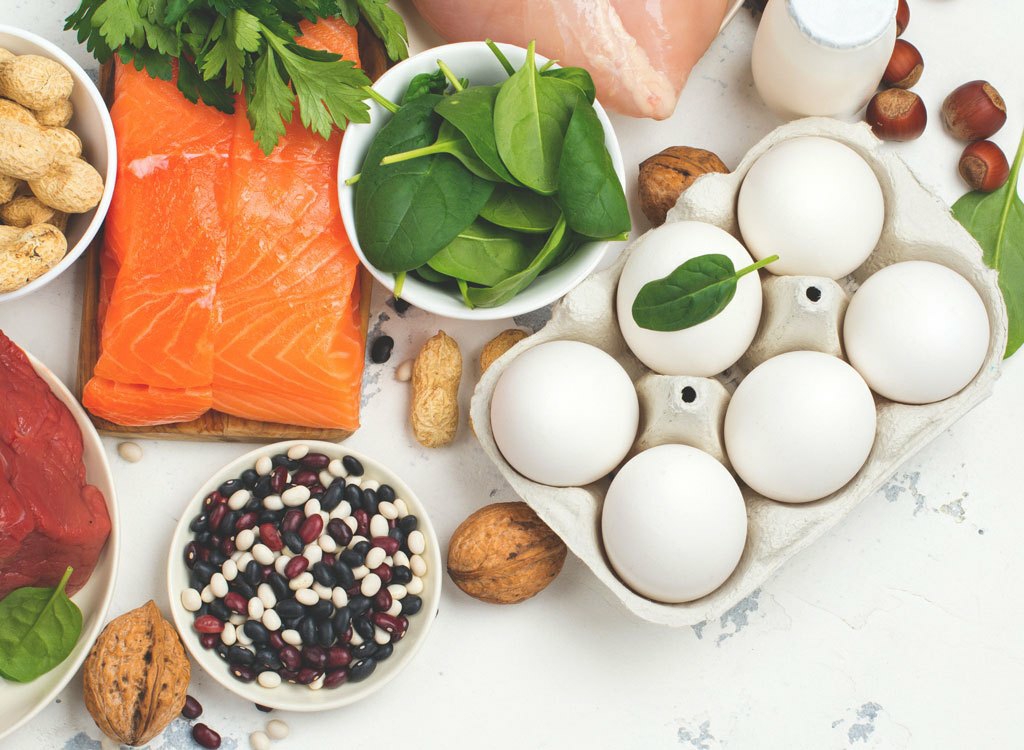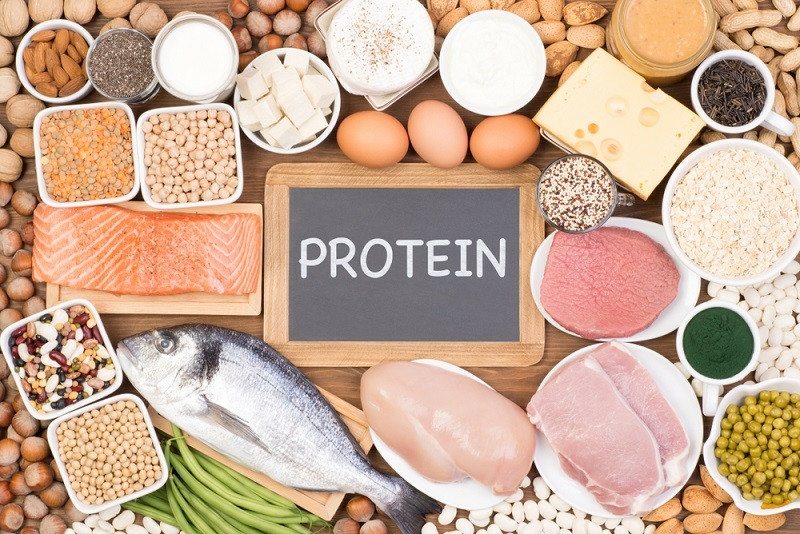Proteins are responsible for providing structure to the body. All enzymes and antibodies are made up of proteins. Proteins are comprised of 22 different smaller molecules called amino acids, 8 of which are not synthesized in the body. Legumes, grains, nuts, seeds, vegetables like spinach, broccoli etc. are the sources of proteins.

The average recommended protein dietary intake is calculated using the ratio of 1 gram of protein for every 1 kilogram of a person’s body weight.
In Ayurvedic practice, diet charts are prescribed according to the individual doshas. In fact, a high protein diet is recommended for the people having Vata dosha but this kind of diet is prescribed with spices to make them easily digestible as vata persons have weak digestion.
For Kapha dosha individuals, they are advised not to take too much protein in their diet.
In recent years, high protein diet is most popular but taking too much protein in diet can cause a variety of health issues.
Symptoms that are associated with too much protein include intestinal discomfort or indigestion, dehydration, headache, irritability, unexplained exhaustion, diarrhoea etc.

5 side effects of eating too much protein are:
Impact on kidneys:
- A protein rich diet has large amount of acid.
- It results in too much impact on kidneys as kidneys respond to this dietary acid challenge with acid secretion which inhibits renal calcium absorption leading to hypercalciuria in combination with exorbitant bone loss.
- An increase in protein intake also results in the urinary calcium and decrease in calcium retention and increases the risk of kidney stones.
Disorders of Liver Function:
- The high protein or high meat diet can cause liver disorders and progression of coronary artery disease.
- It has been found that an individual who eat high amounts of meat may be at an increased risk of bowel cancer.
- An elevated risk of colon cancer is associated with red meat intake.
Brain Fogging:
- Brain fogging is another common sign witnessed in people who consume high amount of protein in their diet. Glucose is the brain’s primary fuel source.
- When people take high amount of protein, they decrease carbohydrate intake.
- Low carbohydrate diet means that brain gets less sugar making people feel hazy or foggy.
- There is a build up of ammonia in the bloodstream.
Bad Breath:
- Many people decrease their carbohydrate consumption when they take excess protein.
- When a person is on low carb diet, the body turns to stored fat for energy.
- When a person doesn’t get enough carbs, the body burns fat and protein for fuel by the process known as ketosis.
- The ketones thus produced have awful smell and cause bad breath.
Digestive issues:
- Consuming too much protein can also contribute to digestive issues.
- One can experience constipation or bloating.
- Protein rich diet is a heavy meal that is hard to digest.
- More protein intake can lead to dehydration as well. A person may experience increased thirst.
Many of the adolescents and athletes take protein supplements in excess and overlook the risks of using them due to the misguided beliefs in their performance-enhancing abilities. The extra protein is not efficiently used by the kidneys, bones and liver.
Hence it is concluded that short-term high protein diet could be necessary in several pathological conditions such as malnutrition but it is evident that too much protein diet could be useless or even harmful for healthy individuals. If you are experiencing any of above indication, might be you have overloaded yourself with amount of protein.
So it is always recommend to have a balanced diet to avoid protein side effects.
Disclaimer:-
This article is not a substitute to the standard Medical Diagnosis or personalized Ayurvedic Treatment! It is intended only for Information!
For experts consultation, please write us at care@blessayurveda.com.
3,663 total views, 1 views today